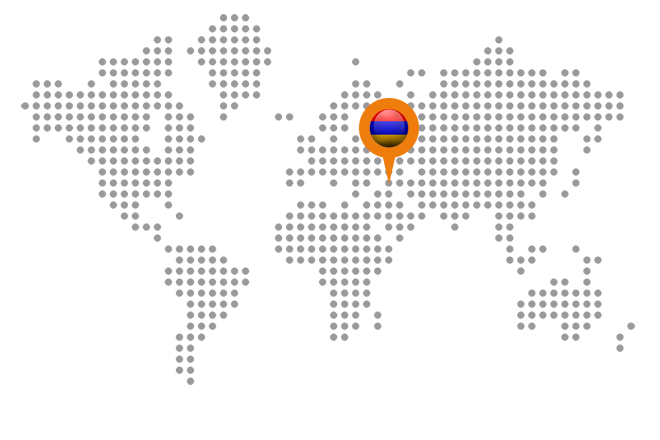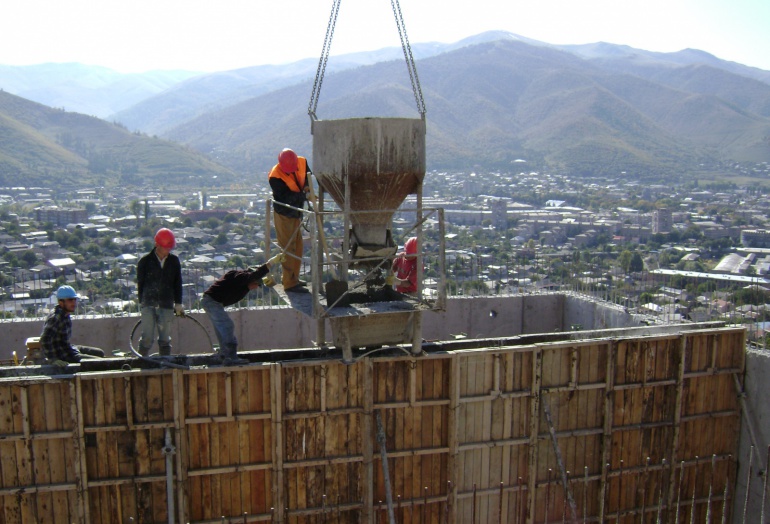Due to the utilisation of inadequate pipe materials and insufficient system maintenance in the past, the earthquake of 1988 and the unfavourable economic situation, which has developed after the disintegration of the former USSR, the water supply and sewerage systems of the project towns Vanadzor and Gyumri and of 69 major and small villages connected to the water transmission systems suffer from severe technical and financial problems:
Water distribution is highly insufficient, water losses are excessive, sewage evacuation partly inadequate, sewage treatment absent, and reduced water demand and inadequate water tariffs do not allow for proper system operation, maintenance and repair by the newly established autonomous water utilities.
Implementation of Water Supply and Sanitation Infrastructure:
The overall goal of the investment component of the project is to reinstate a 24-hour water supply service and a safe drainage and disposal of wastewater for the estimated 320.000 inhabitants of the project area. This shall be achieved by a three-staged rehabilitation programme, of which this second phase will cover up to 50% of the water supply systems and urgent works for the sewer systems.
Institutional Strengthening Measures:
Initially, the two water utilities responsible for the service area were not in a position to operate their schemes cost efficiently. Having been integrated into the centralised set-up of the Armenian Water and Sewerage Enterprise (AWSE), their scope for autonomous commercially oriented decisions was extremely limited. In the frame of the national water sector reform, they have been transformed into autonomous, commercially oriented and cost conscious service providers (Closed Joint Stock Companies under Armenian law), which are jointly owned by the State Water Committee (SCWS) and the urban and rural communities. Once fully operational and self-accounting, the SCWS will pass its shares on to the communities and these will subsequently become the sole shareholders of the two companies.
The project facilitates this very process by providing specialized advice and training to management and senior staff as well as to the supervisory boards of the two water utilities. It is implemented in parallel to the investment project for the rehabilitation of the water supply and wastewater systems in the two service areas.
Services Provided
Implementation Consultancy Services:
- Preparatory studies
- Master plans, separate for the 4 schemes
- Feasibility studies, separate for the 4 schemes
- Procurement of machinery, vehicles, equipment, tools and materials for technical refurbishment of workshops and for operation and maintenance of water supply and sewerage systems;
- Preparation of final designs for the rehabilitation of water supply, sewerage and sanitation systems, offices and workshops;
- Preparation of tender documents incl. comprehensive specifications and bills of quantities, in accordance with relevant local and international regulations (FIDIC);
- Assistance in tendering, tender evaluation and contracting;
- Supervision and surveillance of rehabilitation and construction works.
- Supervision of additional hydrogeological investigations.
Institutional Strengthening measures:
- Joint strategic and business planning for, including definition of performance indicators, revision of organisational structure and tariff policies
- Assessment of training needs, focussing on financial and commercial administration, HR management, O&M issues IT and computer-aided management information systems, public and customer relations,
- Elaboration of subject-specific training programmes
- Implementation of training
- Review and refresher training.
Facts and Figures
Shirak |
Lori |
|
| Inhabitants supplied in the year 2027 | 209,000 | 115,000 |
| Max. yield | 77,000 m³/d | 50,000 m³/d |
| Average daily demand | 31,730 m³/d | 20,700 m³/d |
| Reservoirs | 40 | 31 |
| Pipelines | 400 km | 331 km |
| Zones | 5 | 15 |
| Plus villages | -- | 156 |



